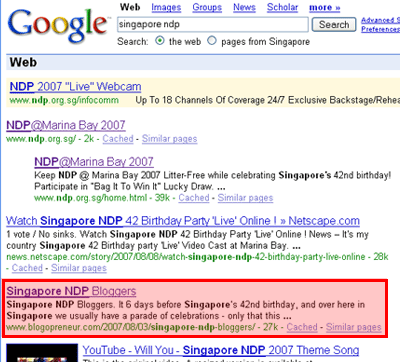 I just realised what proper search engine optimization (SEO) has done for my blog. Its crazy. I’m really happy with the results I am getting!
I just realised what proper search engine optimization (SEO) has done for my blog. Its crazy. I’m really happy with the results I am getting!
For a quick update – my traffic for the month of November was 17 times my traffic for September! That is a whopping 1700%! And I am getting listed 36 times more in keywords phrase searched in November than in September. This is awesome isn’t it? (Okay… I admit its quite shameless to call myself awesome, but I deserve it after the hard work don’t I) 
Some Internet marketers may argue that SEO is not important when you have an email list, and search algorithms can change overnight, so while you can spend a full year optimizing your site, Google can “for no reason” pull you down and you will lose all your traffic. This is partially true, and in fact, Problogger Darren Rowse was even posting about what should you do if your Google Ranking falls and you lose all your traffic.
Darren’s advice in 7 steps are
- Don’t panic
- Wait
- Analyze/research
- Improve your site
- Diversify
- Contact Google
- Re-evaluate
I want to emphasize his statement:
This advice is written for people who have not being trying to game Google. If you engage in black hat SEO then it might be that you’ve been banned or penalized for doing so – I’m not aware of what you should do in this case.
However, I want to also point this out – There is no reason why Google should kick you out unless you are doing something wrong, isn’t it? The role of search engines is the bring the most related websites for a particular search term. If you fulfil that criteria, I really don’t see why Google, or any search engine for that matter, to downgrade your rankings.
Anyway, for today, what I want to do is to share with you this opportunity to do the same.
No! No! I’m not ready to teach you yet! I’m recommending my mentor’s SEO web design workshop. I tell you, this is by far the best SEO training you will ever get in Singapore. Guaranteed!
He will be organising a hands-on workshop in January.
I spoke to him a couple of days back, and I told him that he is really charging too little for his course, considering the quality of the information, and he affirmed that he will be working towards raising the fee for subsequent workshops.
His SEO works! To put it simply, if you are willing to follow the principles taught in the workshop, I can guarantee that you will be able to rank well in search engines for the keyword you target! Check out the best SEO course in Singapore, and sign up now!
To testify that his SEO works big time, let me take on this challenge – that the permalink for this post, yes, this one I am writing right now will rank in the first page of Google for the term “SEO Workshop in Singapore” before Christmas 2006!
Update: This post is now ranked 4th in Google, with my blog ranking 3rd, and my mentors’ pages ranking first and second. In mere 28 hours! So yeah, it works. 🙂


 Imagine paying over a dollar for each visitor to your site! For more competitive keywords, SEO will probably take 6 months or more, but would you imagine how powerful it would be if you had top placement for an organic listing? You will be getting so much free traffic after that initial hard work!
Imagine paying over a dollar for each visitor to your site! For more competitive keywords, SEO will probably take 6 months or more, but would you imagine how powerful it would be if you had top placement for an organic listing? You will be getting so much free traffic after that initial hard work! I just realised what proper search engine optimization (SEO) has done for my blog. Its crazy. I’m really happy with the results I am getting!
I just realised what proper search engine optimization (SEO) has done for my blog. Its crazy. I’m really happy with the results I am getting! Have you submitted your sitemap to Google? If not, its time to do so now!
Have you submitted your sitemap to Google? If not, its time to do so now!